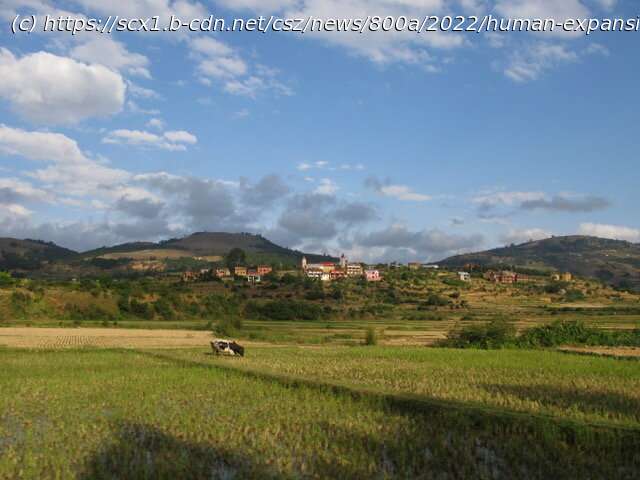The island of Madagascar—one of the last large land masses colonized by humans—sits about 250 miles (400 kilometers) off the coast of East Africa. While it’s still regarded as a place of unique biodiversity, Madagascar long ago lost all its large-bodied vertebrates, including giant lemurs, elephant birds, turtles, and hippopotami. A human genetic study reported in the journal Current Biology on November 4 links these losses in time with the first major expansion of humans on the island, around 1,000 years ago.
The island of Madagascar—one of the last large land masses colonized by humans—sits about 250 miles (400 kilometers) off the coast of East Africa. While it’s still regarded as a place of unique biodiversity, Madagascar long ago lost all its large-bodied vertebrates, including giant lemurs, elephant birds, turtles, and hippopotami. A human genetic study reported in the journal Current Biology on November 4 links these losses in time with the first major expansion of humans on the island, around 1,000 years ago.
“This human demographic expansion was simultaneous with a cultural and ecological transition on the island,” says Denis Pierron, French National Center for Scientific Research (CNRS) researcher in Toulouse, France. “Around the same period, cities appeared in Madagascar and all the vertebrates of more than 10 kilograms disappeared.”
The origins of humans in Madagascar has long been an enigma, Pierron explained. Madagascar is home to 25 million people who speak an Asian language despite the island’s proximity to East Africa.






